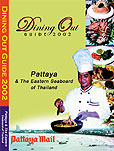|
BOT admits it periodically intervenes in baht movement
Bank of Thailand’s governor, M.R. Pridiyathorn
Devakula recently conceded the central bank, like other regulators in
region, has periodically intervened in the currency movement to prevent it
from being too volatile.
He said in the month of July the Thai baht had
strengthened to a new high of 40.2 to the US dollar in the same direction
with the Japanese yen and euro which climbed up to 115 and 1.01 to the
dollar respectively.
M.R. Pridiyathorn believes the US dollar has already
bottomed out and was likely to gradually strengthen from now on. Under
current circumstances, he said, central banks of all countries in Asia,
including the BOT, need to intervene in the currency movement from time to
time in a bid to ensure stability.
However, the BOT governor admitted that the baht
remained slightly volatile even after intervention because the bank was
not in a position to completely resist the market mechanism of the
free-float. The BOT’s best move now is to balance benefits for importers
and exporters.
The BOT governor said, “We have tried to stabilize
the baht at around 42 to the US dollar for the benefit of export. But we
cannot stop the market mechanism. The baht can weaken to 42 only when the
yen and euro stay at 120 and 0.9 to dollar. Under the current
circumstance, we have no choice but to allow the baht to hover around
40-41.” (TNA)
Phuket entrepreneur invests in ostrich farm to meet demand
An entrepreneur in the southern province of Phuket
decided to run a small ostrich farm after seeing bright prospects for the
business. Demand for ostrich meat is soaring in the region.
Wichien Intarasupphol, an ostrich farm owner in Phuket,
said the demand for ostrich meat in Thailand is increasing drastically,
especially in Phuket where a large number of tourists visit the province
each year and enjoy the exotic taste of ostrich meat. “The meat of the
big bird is amazingly popular among foreign tourists,” he said.
Initially, Wichien started his business with an
investment of two million baht on a four-rai plot of land. Now his farm
has expanded to 90 rai in Talang District in Phuket.
Wichien raises the birds at his farm for restaurants.
His farm orders about 100 birds from South Africa twice a month and
distributes them to customers in the southern provinces such as Phuket,
Phang-nga, Krabi, Chumphon, and Surat Thani.
He also sells young birds to other farmers in the
region who are interested in starting up in the industry.
“It takes about two or three months before the
ostriches are ready to be sent to slaughterhouses and prepared for sale to
customers,” he said. “In the future, I will expand my farm because
ostrich farming is definitely a viable business. The meat is gaining favor
with locals as well as tourists,” he said. (TNA)
Loans to SMEs unlikely to meet 400 billion baht target this year
Efforts by state financial institutions to extend 400
billion baht in loans to small and medium-size enterprises (SMEs) this
year are unlikely to meet the target due to the lack of coordination and
budget support.
Vivat Vinitchaikul, director of the SME Promotion
Institute, admitted state financial institutions would not meet the 400
million baht target given the fact they had provided only 100 billion baht
in loans to SMEs in the first half of this year.
The SME Promotion Institute director said Deputy Prime
Minister Somkid Jatusripitak will invite executives of the state financial
institutions to meet in August to assess overall lending to SMEs.
“The institute has already informed the prime
minister of the lack of progress. The implementation of an action plan
worked out at the workshop on SMEs has been hamstrung through a lack of
coordination and budge constraints,” Vivat said.
He said the institute would team up with six financial
institutions, including Krung Thai Bank, Siam City Bank, BankThai,
Government Savings Bank, Industrial Finance Corporation of Thailand, and
Small Industrial Finance Corporation to set up the Fund for Development
and Promotion of SMEs worth 40 billion baht.
The fund wants to offer SMEs interest rates at 0.5%
less than those provided by other financial institutions. It is expected
the fund would begin lending in the middle of August. Vivat said the fund
intends to stress lending to SMEs who failed to obtain loans from
financial institutions because of a lack of collateral. (TNA)
Customs Department expects revenues to be lower than target
Tax revenues collected from imports and exports of
goods this year are expected to be lower than the government’s earlier
target. Manit Witayatem, director-general of the Customs Department
announced that the country’s overall tax revenues collected from imports
and exports of goods were expected to be 5-6% lower than the
government’s earlier target of B105 billion.
This was due to decrease in imports and lower import
tax rates. Manit said, however, that tax revenues from imports and exports
in May and June were higher than those of earlier months of the 2002
fiscal year, which began on October 1, 2001.
The Customs Department projects, however, that tax
revenues during the rest of the 2002 fiscal year, which ends on September
30, will be on the rise.
The director general said that the closure of
Myanmar’s checkpoints did not have a serious affect on the country’s
customs revenues, as trade along the Thai-Myanmar border normally accounts
for B100 million annually, or less than 1% of total tax revenues collected
by the Customs Department each year.
A recent report released from Thai Farmers’ Bank
Research Center said that revenues from the country’s imports and
exports could very well increase in the next 12 months if world economic
conditions improve.
Thailand’s leading think tank warned, however, that
there were still risk factors for the nation’s economic recovery as long
as its economic conditions depend on an improved world economy.
The report suggested that more government stimulus
measures are needed. The report also said that continued good government
and corporate management plus efficient use of the government’s budget
were needed to ease the risks. (TNA)
China seen as both trade partner and rival of Thailand
The Thai Farmers Research Center says that Thailand
needs to try to turn crisis into economic opportunity in terms of trade
and investment cooperation with China. According to the think tank, China
has the potential to become both a trade partner and competitor.
TFRC issued a recent report stating that China appears
to be a new main destination of Thai food products including sugar,
cassava, vegetable oil, and frozen chicken after these products
experienced overly strict examination in European markets.
However, the report noted that China could also be a
serious rival of Thailand in food products such as chicken, fishery
products, vegetables, fruits, rice, canned foods, sugar, and animal feed.
China’s exports of these products, except sugar and
animal feed, have outpaced imports in terms of value. In this area China
has proved a rival.
TFRC said, however, Thailand must remember that
agricultural development in China is part of its government’s internal
political policy. Producers and exporters of farm products are given full
state support.
TFRC projected the scenario could change when China
becomes a member of the World Trade Organization because the country will
be forced to turn to a ‘stress market mechanism’.
Thailand’s agriculture industry would then benefit
from China’s entry into WTO since it would gain the opportunity to
expand exports of food into China in the next five years.
TFRC suggested that Thailand could also benefit from
increased direct investment in China’s agriculture industry. Chinese
consumer behavior is changing and the food process industry is growing
rapidly. (TNA)
|
|
News | Business News | Features | Columns | Letters | Sports | Auto Mania
Kid's Corner | Who’s Who | Travel | Our Community | Dining Out & Entertainment
Social Scene | Classifieds | Community Happenings | Books Music Movies
Club in Pattaya | Sports Round-Up
E-mail: [email protected]
Pattaya Mail Publishing Co., Ltd.
370/7-8 Pattaya Second Road, Pattaya City, Chonburi 20260, Thailand
Tel.66-38 411 240-1, 413 240-1, Fax:66-38 427 596
Copyright © 2002 Pattaya Mail. All rights reserved.
This material may not be published, broadcast, rewritten, or redistributed.
|





